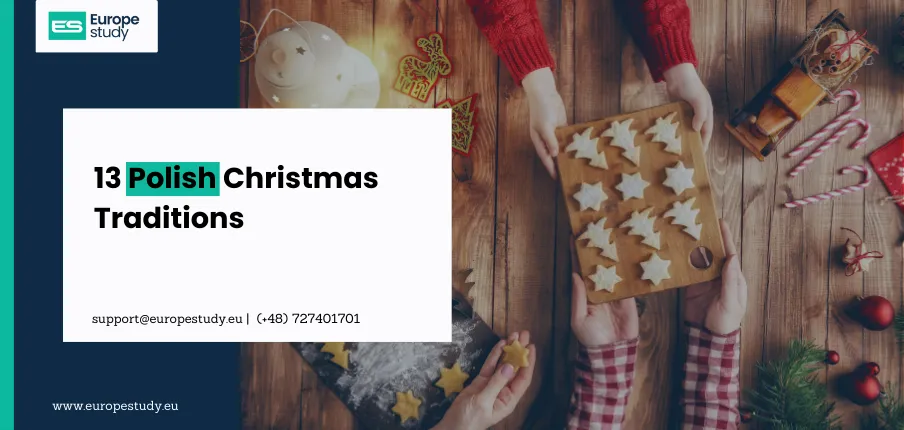
13 Polish Christmas Traditions
Christmas in Poland is a deeply cherished holiday, filled with rich traditions and customs that bring families and communities together. One of the most significant celebrations is Wigilia, the Christmas Eve dinner, which is steeped in centuries-old rituals. Here’s a look at 13 unique Polish Christmas traditions that make this time of year so special.
1. Wigilia Dinner
The heart of Christmas in Poland is the Wigilia, a festive dinner held on Christmas Eve. The meal is a symbol of unity, peace, and warmth. It traditionally consists of 12 meatless dishes, representing the 12 Apostles. Families often prepare dishes such as carp, pierogi (dumplings), beetroot soup (barszcz), and a variety of herring preparations.
2. The First Star of Christmas Eve
Before the Wigilia dinner begins, it’s customary for the family to wait until the first star appears in the sky. This star is seen as a sign of the birth of Jesus and marks the start of the evening's celebrations.
3. Sharing the Opłatek
A special tradition involves sharing opłatek, a thin wafer, among family members. Each person breaks off a piece and exchanges wishes of health, happiness, and prosperity for the coming year. This moment fosters a spirit of forgiveness and unity.
4. Empty Seat at the Table
A symbolic gesture at the Wigilia dinner is setting an extra place at the table for an unexpected guest or a lost loved one. This tradition is a reminder of hospitality and the importance of family, whether they are present or not.
5. Carp for Christmas Eve
The tradition of eating carp on Christmas Eve is deeply rooted in Polish culture. The fish is often served in various forms, from fried to in aspic. In some families, live carp is bought days in advance and kept in the bathtub, adding a unique charm to the celebration.
6. Midnight Mass (Pasterka)
Attending Pasterka, the Midnight Mass, is an essential part of Polish Christmas. After the Wigilia dinner, many Polish families head to church for a late-night service, marking the birth of Christ with songs, prayers, and a deep sense of reverence.
7. Polish Christmas Carols (Kolędy)
Singing kolędy, traditional Polish Christmas carols, is a beloved tradition. These songs, passed down through generations, tell the story of Christ’s birth and fill homes with joy and festive spirit.
8. Decorating the Christmas Tree
Polish families decorate their Christmas trees with great care, often using handmade ornaments, candles, and a star at the top. In rural areas, it’s not uncommon to see traditional decorations like apples, walnuts, and gingerbread cookies adorning the tree.
9. First Christmas Meal for Animals
A unique tradition in some Polish homes involves feeding animals on Christmas Eve. It’s believed that animals can speak on this night, so people take a moment to offer them a treat, showing respect for all creatures.
10. Gifts on Christmas Eve
Unlike many countries where gifts are exchanged on Christmas Day, in Poland, presents are typically given on Christmas Eve. After the Wigilia dinner, family members gather around the Christmas tree to open their gifts.
11. The Blessing of the Christmas Tree
In some parts of Poland, families bless their Christmas trees with a prayer before the tree is decorated. This ritual emphasizes the religious significance of the season.
12. Feasting and Fasting
While the Wigilia meal is a grand feast, it’s also a time of fasting. Many Poles refrain from eating meat on Christmas Eve, in keeping with Catholic traditions of fasting before the festive celebration of Christmas.
13. Christmas Day Feasts
The Christmas Day celebration continues with more feasting, but the emphasis is often on hearty, meat-filled dishes like roast meats, sausages, and a variety of desserts. The festive meals continue throughout the holiday season.
Polish Christmas traditions, particularly those surrounding Wigilia, create a warm, communal atmosphere, where family, faith, and festivity come together. These customs not only celebrate the birth of Christ but also reinforce values of hospitality, love, and connection, making Christmas in Poland a truly magical experience.





